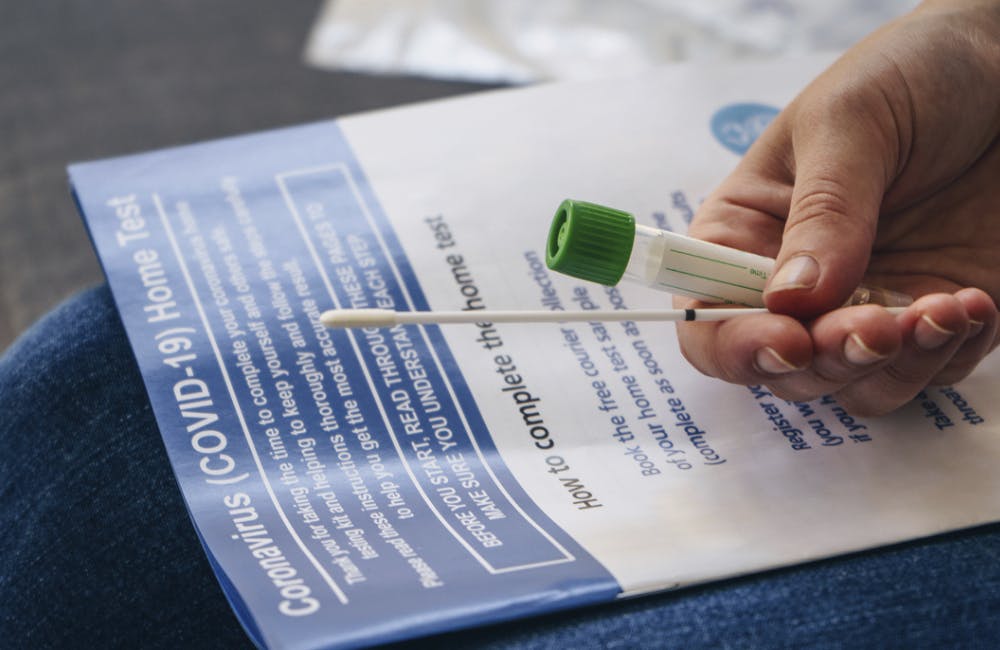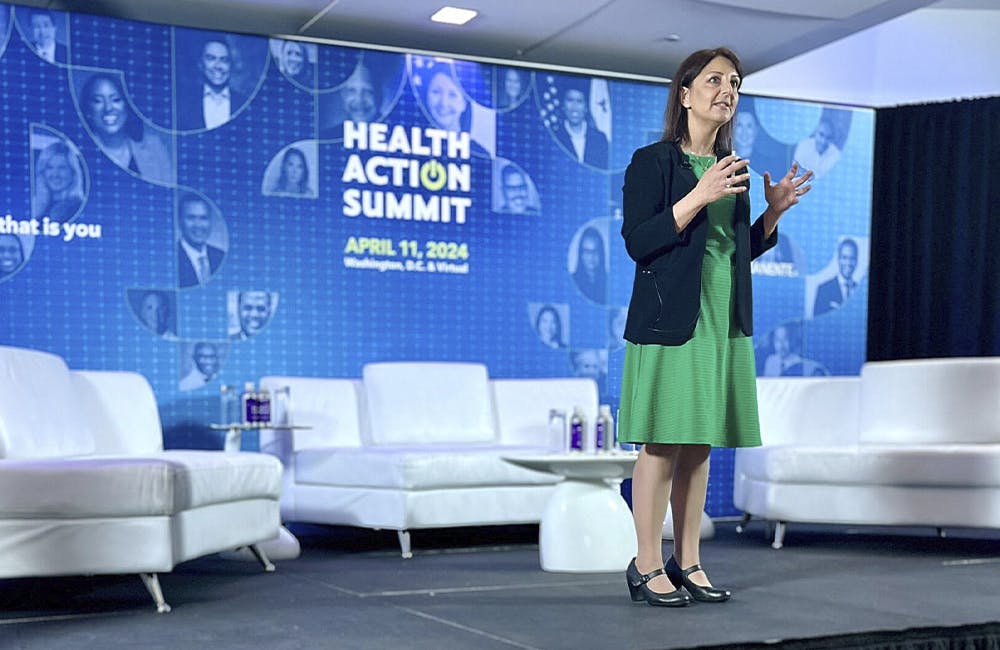The Future of At-Home COVID-19 Testing
HHS’ at-home and self-testing services could help the public maintain health safety amid reopening plans.

The Department of Health and Human Services is weighing whether recently expanded testing services with at-home and self-testing offerings are helping to reduce the rate of transmissions of COVID-19.
In President Biden’s five-step strategy to help reopen businesses and return to schools, Biden highlighted the importance of safety precautions, like increasing testing and personal protective equipment, to control the spread of the virus.
The Biden-Harris Administration has advocated for regular, reliable and free testing to all Americans. Under this priority, Biden will work to double the number of drive-through testing sites, invest in next-generation testing, like at-home and instant tests, to scale up testing capacity.
“The American people deserve an urgent, robust, and professional response to the growing public health and economic crisis caused by the COVID-19 outbreak,” the Biden-Harris plan to beat COVID-19 stated.
To support the administration’s priorities, HHS agencies have launched new initiatives and programs to ramp up testing services and availability.
In March, the Centers for Disease Control and Prevention partnered with the National Institutes of Health on its “Say Yes! COVID Test” initiative to help determine whether frequent self-administered COVID-19 testing could help slow community transmission of the virus. The agencies took into account a number of factors to launch the efforts initially in various sites in Tennessee and North Carolina, including existing community relationships through NIH’s Rapid Acceleration of Diagnostics’ Underserved Populations (RADx) program.
NIH’s RADx program will provide up to 160,000 residents with free access to rapid COVID-19 home tests and will use the results to analyze the effectiveness of CDC’s new program.
A recent study, supported by the RADx initiative, found that rapid antigen testing for COVID-19, when conducted at least three times per week, could deliver a viral detection level on par with the gold standard of PCR-based COVID-19 testing processed in a lab.
“Reliable and widely available testing is a critical part of our efforts to stop the spread of COVID-19. Regular screening with at-home COVID-19 tests can strengthen our prevention efforts,” said CDC Director Dr. Rochelle Walensky. “Combined with efforts to increase vaccinations, this important initiative will help us understand how best to utilize these new at-home tests to reduce viral transmission rates in communities.”
To support NIH’s research, participants in this initiative can volunteer in the agency’s study that will collect additional data through surveys. The results will help determine whether frequent self-administered testing could prevent the spread of the virus.
“If self-testing is shown to effectively reduce viral spread in the selected communities, the hope is that it will lead to wider distribution and acceptance of frequent home testing across the country — ultimately providing an easy and accessible new means of stemming the spread of the virus,” said Elizabeth DiNenno, associate deputy director for surveillance, epidemiology and laboratory sciences at the CDC.
The Food and Drug Administration recently announced that it would allow some COVID-19 test developers to deliver at-home testing services to simplify the virus screening process. The agency’s new policy takes into account that repeated testing over time can improve the accuracy of results.
“We believe this effort will pave the way for further expanding the availability of tests authorized for screening asymptomatic individuals, help bolster existing and new testing programs, and increase consumer access to testing,” said Center for Devices and Radiological Health (CDRH) Director Dr. Jeff Shuren and Office of In Vitro Diagnostics and Radiological Health Director Dr. Timothy Stenzel in a statement.
FDA is still processing 160 to 200 emergency use authorizations applications for COVID-19 tests per month, Stenzel said during a CDRH town hall last week.
“We’re doing our best to keep up, and we’re clearing applications weekly at the same rate as we’re receiving them,” Stenzel said.
As of June 2, FDA has cleared 308 unique submissions and more than 500 supplements and amendments for COVID-19 testing, enabling a variety of tests to be released on the market.
“We’ve seen testing go down across all categories in the nation, and also the number of positive tests have gone way down. The percent positive rate going down is great news for the country,” Stenzel said.
This is a carousel with manually rotating slides. Use Next and Previous buttons to navigate or jump to a slide with the slide dots
-

CDC Updates Public Health Data Strategy
Accelerating data sharing through capabilities like electronic case reporting make up a large portion of the new two-year plan.
3m read -

HHS Makes One-Stop Cybersecurity Shop in ASPR
The agency is working on standards and cyber incident response capabilities to help health care organizations combat ransomware threats.
4m read -

Women Technologists Highlight Workforce Impacts in FDA IT Plan
Tech leaders tackle amplifying women in the workforce as the agency works toward its two-year IT modernization plan.
3m read -

How AI, Digital Transformation in Health Care Compare Around the World
HHS and EU officials contrasted the different frameworks for emerging technology and the challenges that remain.
4m read








